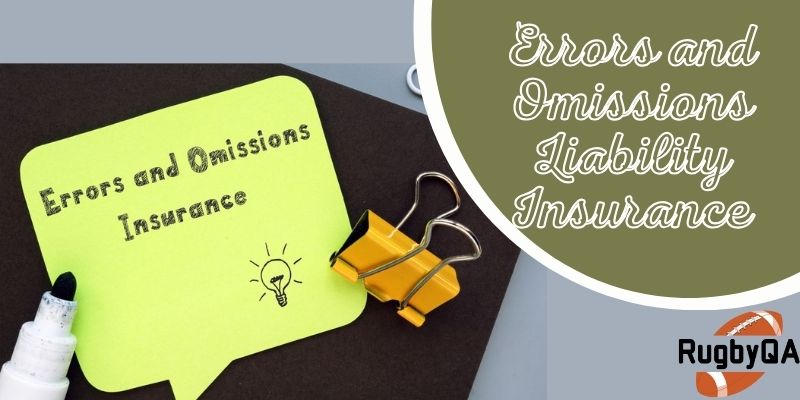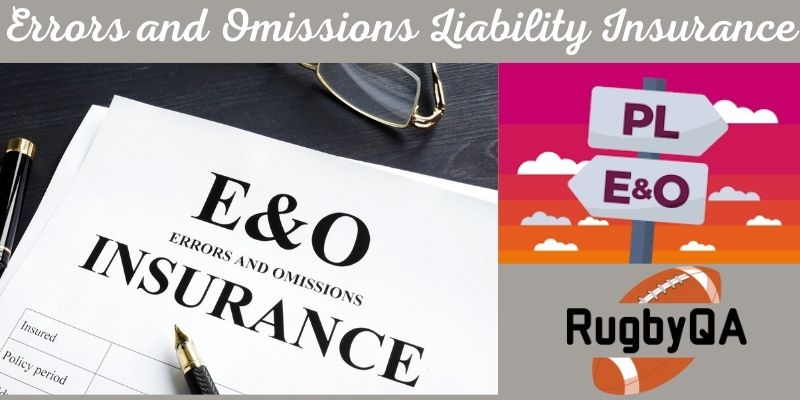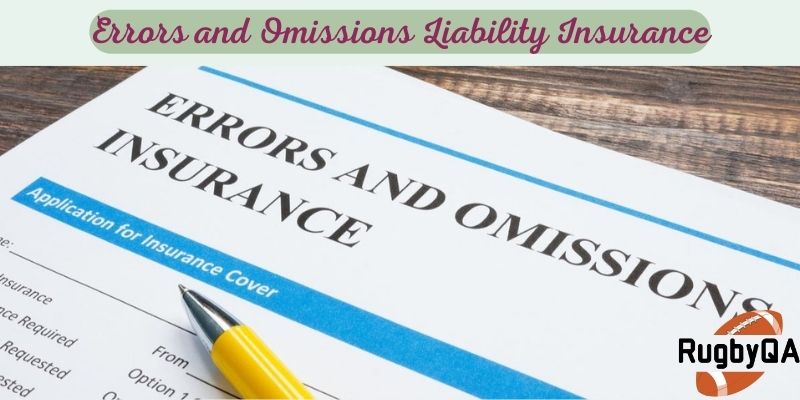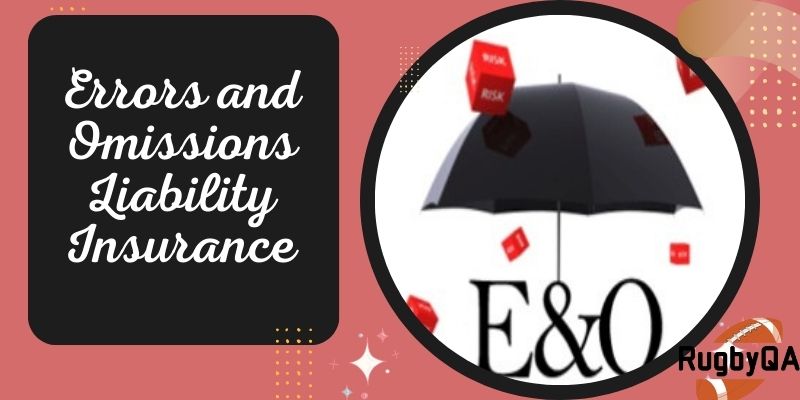Errors and Omissions Liability Insurance (E&O) is a type of professional liability insurance that defends companies, the employees who work for them, and other professionals from claims of subpar work or careless behavior. Let’s rugbyqa.com find out!
Understanding Errors and Omissions Liability Insurance

What Errors and Omissions Liability Insurance Covers
The benefits E&O insurance offers to organizations or individuals may differ significantly depending on the contract and issuing insurance company. E&O insurance typically offers protection for:
- Mistakes, omissions, or mistakes committed while carrying out tasks.
- missing a deadline or not offering a customer the specific service they requested.
- flaws in professionalism.
- inability to follow a certain standard of care, especially one set by a specific profession.
- breach of contract.
What E&O Insurance Does Not Cover

Who Needs E&O Insurance
Errors and omissions insurance often covers court costs and any settlements up to the amount specified by the insurance policy. Organizations that provide professional services or expert advice frequently need to get this kind of liability insurance. Without E&O insurance, a company could be held responsible for legal fees and millions in damages. Real estate agents, registered investment advisors, financial planners, and other financial professionals can purchase errors and omissions liability insurance. Regulating bodies, such as insurance regulators, the Financial Industry Regulatory Authority (FINRA), or even a company’s investors, frequently demand E&O insurance. E&O insurance has advantages for companies beyond the financial industry, including NGOs, general contractors, and engineering firms. Any other company or person who provides a service, such as a wedding planner or a printer, must have E&O insurance.2 Doctors, dentists, and other healthcare professionals also obtain malpractice insurance, which is a sort of E&O insurance. For instance, even though the risks were well-known and within the customer’s established parameters, the client may nonetheless sue the advisor or broker after making a poor investment. Even if a court or arbitration panel rules in favor of a broker or investment advisor, it may still be prohibitively expensive to defend oneself legally. This is why E&O insurance is essential.Errors and Omissions Liability Insurance Cost
The sort of business covered, where it is located, and any previously resolved claims are all factors that affect a policy’s cost. Having a history of legal troubles puts a person or corporation at a higher underwriting risk, which could result in higher premiums or worse terms for E&O insurance. Every year, E&O insurance normally costs between $500 and $1,000 per employee.
Example of E&O Insurance

Imagine a situation where hackers infiltrate a company that runs servers utilized by third parties for data purposes and gain access to private data and consumer information. Following this, the affected firms bring a lawsuit against the server-hosting company for losses brought on by inadequate security.
The provider of server hosting assesses the coverage and exclusions in its E&O insurance policy. It benefits the organization that its errors and omissions policy is thorough and covers these situations. The insurance company is responsible for paying the legal expenses related to the court litigation against various firms. It also includes any monetary damages that are determined arbitrarily or by the courts. Depending on the resources available to the company, errors and omissions insurance may be able to keep it from suffering a serious financial setback or even going bankrupt. If you or your team provide professional advice or other professional services, errors and omissions liability insurance may be something to consider.Conclusion
A sort of defense against mistakes committed during business operations is errors and omissions liability insurance. When the business actually misses a deadline, forgets something crucial, exhibits professional negligence, or otherwise acts carelessly, the injured party may bring a claim against the business. In such circumstances, the company may be protected by insurance to pay for legal and damage expenses.

